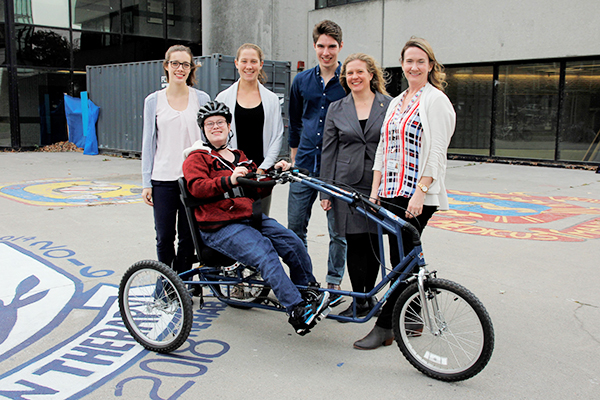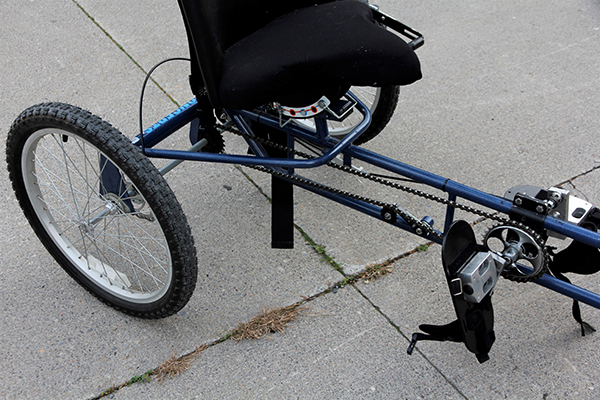On the road again
October 24, 2017
Share

Janessa Gerhardt has a cool, new set of wheels thanks to Queen’s University engineer Claire Davies and a team of fourth year students working in her Building and Designing Assistive Technology Lab.
The Napanee teenager, who is living with cerebral palsy, had been trying for years to find a bike that would suit her limited range of motion. Her search came up empty until her physiotherapist Karen Forbes met up with Dr. Davies, who proposed a solution.
“We attended a special adaptive bike fair last spring but no bike worked for Janessa so she left in tears,” Ms. Forbes says. “We met with Claire soon after and she proposed a solution.”

Dr. Davies says she tasked a team of her fourth-year students with redesigning the crankshaft of a three-wheeled bicycle, which was the main area of concern. Due to her limited range of motion, Ms. Gerhardt was unable to pedal a traditional bicycle. Now, she rides up to two or three kilometers twice a day which is critical for someone confined to a power wheelchair, according to her therapist.
“Most kids her age who are at her level of mobility are confined to a power chair and that isn’t healthy,” she explains. “Janessa understands the health benefits of exercise so it’s important for her to be active. Obesity is a genuine concern which affects all areas of health, especially for those with limited mobility.”
During a media event on campus, Ms. Gerhardt couldn’t stop smiling or talking about her bicycle.
“It gives me exercise and freedom and my legs work like they are supposed to," she says. "It’s really fun. If it wasn’t for Karen, Claire and their team, I wouldn’t be riding at all.”
Dr. Davies says the vision for her multidisciplinary lab at Queen’s, which includes occupational therapists and physical therapists, focuses on designing and building assistive devices to increase the independence of individuals with disabilities. Research includes assistive learning devices for children with visual impairments and Nintendo Wii software to prevent older adults from falling by improving their balance.